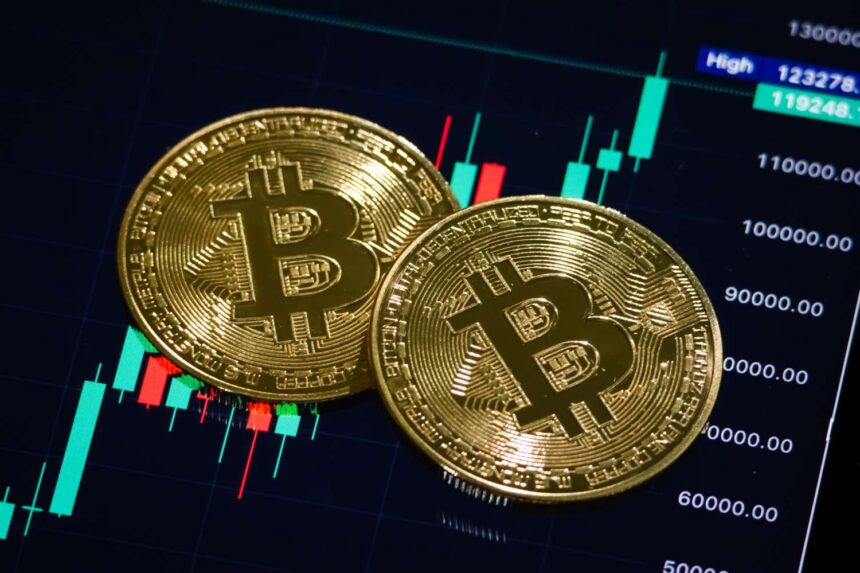The 1 BTC Club: Why You’re Rarer Than You Think
If you own at least 1 Bitcoin, prepare for a little boost to your ego. Blockchain data reveals that about 827,000-900,000 addresses currently hold a minimum of 1 Bitcoin (BTC). However, many of these wallets are managed by exchanges, institutions, or individuals who divide their holdings across various addresses. Therefore, the actual number of unique individuals possessing 1 Bitcoin is probably closer to 800,000-850,000. This represents an incredibly small elite group. Out of a global population of 8 billion people, this means that having 1 BTC corresponds to merely 0.01%-0.02% of the populace. Additionally, it is unevenly distributed. By 2025, approximately 0.18% of cryptocurrency owners have a full Bitcoin or more, indicating that fewer than two for every 1,000 cryptocurrency participants have hit the 1-BTC benchmark.
How Much Bitcoin Do You Need to Be Rich?
With the current price of Bitcoin surpassing $120,000, owning a single coin represents a hefty risk for many. To invest $120,000 into a single volatile asset like Bitcoin requires both significant income and strong conviction. While the average person may admire Bitcoin from the sidelines, very few can afford to dive in without exposing themselves excessively. Around 16 million millionaires exist globally, yet fewer than 900,000 individuals actually hold 1 BTC or more. Therefore, owning 1 Bitcoin is rarer than achieving millionaire status. This leads to a change in the question from “How much Bitcoin do you need to be rich?” to “What happens if you own 1 Bitcoin?” The answer: you’re already among an elite crowd. Did you know? NFL star Odell Beckham Jr. converted his 2021 NFL salary into Bitcoin. His initial $750,000 could be worth around $1.35 million after BTC surged past $123,000 in mid-2025.
Bitcoin Scarcity: There’s Not Enough for Everyone Anyway
Only 21 million Bitcoins will ever be created — and most are already accounted for. Satoshi Nakamoto designed Bitcoin with a hard cap of 21 million coins. As of mid-2025, over 19.8 million BTC have already been mined, leaving less than 1.2 million yet to be produced. When accounting for lost coins and hoarded supplies, the available pool shrinks even further. This is where the situation becomes precarious. The richest players (often referred to as whales) own the majority. About 1.86% of all Bitcoin addresses control 90% of the supply. Major exchanges, early adopters, and institutional custodians dominate the Bitcoin ledger. Just four addresses, each holding between 100,000 and 1 million BTC, collectively possess 14% of all coins. The top 100 addresses account for over 58%. So, if you’re pondering, “Is owning 1 Bitcoin enough?” the answer is yes, because most individuals will never reach that point. As Bitcoin tax policies tighten and investing in Bitcoin becomes more competitive, the journey to owning a full coin is not becoming any easier. Did you know? Bitcoin’s pseudonymous creator, Satoshi Nakamoto, is believed to hold between 750,000 and 1.1 million BTC, valued at an estimated $92 billion-$135 billion in mid-2025.
The Challenges of Bitcoin Ownership
Globally, roughly 6.8% of the population — approximately 560 million individuals — own cryptocurrency, as per a 2024 Triple-A survey. However, only a minor subset within that cohort possesses enough Bitcoin to reach whole-coin status. Most people hold less than 0.01 BTC, highlighting how elusive the goal of owning 1 BTC is for the majority. The barriers extend beyond personal finance. Approximately 1.4 billion adults remain unbanked, lacking internet access, digital identity, or cryptocurrency services. Even in regions with popular mobile money systems, like Sub-Saharan Africa or South Asia, users still face Know Your Customer (KYC) restrictions, high on-ramp fees, or ambiguous Bitcoin tax regulations. This makes investing in Bitcoin practically unattainable for millions, despite its seemingly borderless appeal.
Is Owning 1 Bitcoin Enough? For Many, It’s Still Too Risky
Even with access and capital, the fear factor persists. Bitcoin mining and trading in 2025 have led to extreme price fluctuations. Ranging from surging past $109,000 to dropping back down to the mid-$70,000s within weeks, Bitcoin’s volatility can be overwhelming — particularly for those unaccustomed to 20%-30% drawdowns. Beyond price movements, Bitcoin still bears the stigma of speculation. To numerous individuals, it remains a volatile investment rather than a stable store of value. High-profile critics (including Robert Shiller, Warren Buffett, and George Soros) have labeled it everything from a bubble to a Ponzi-like scheme. Coupled with genuine instances of coordinated manipulation, it’s no wonder that many question whether owning 1 Bitcoin holds any long-term significance, or if it’s merely a high-risk endeavor. Did you know? Some of the world’s premier investors have criticized Bitcoin as a bubble. Nobel laureate Robert Shiller termed it “the best example of a speculative mania”; Warren Buffett described it as “rat poison squared”; and George Soros referred to it as “a typical bubble” at Davos, though his fund later explored cryptocurrency trading.
Owning a Full Bitcoin in 2025: Here’s How to Get There
Various strategies exist to attain 1 BTC, although they still demand time, risk, or capital. The most straightforward method is accumulation via dollar-cost averaging (DCA). By consistently investing a fixed amount, investors can weather volatility and gradually work their way toward 1 BTC without the psychological burden of large one-time purchases. Others opt for yield-generating crypto programs to maximize returns, though these come with higher risks. For high-income earners, accumulating a full coin often just entails directing disposable income towards Bitcoin investment. For companies like Strategy or Tesla, directly purchasing Bitcoin using reserves has transformed them into corporate whales — proving that owning a full Bitcoin in 2025 becomes simpler when operating on a larger scale. Additionally, access is widening. Spot Bitcoin exchange-traded funds (ETFs) launched in 2024, allowing people to buy Bitcoin through conventional brokerage accounts. These products — such as BlackRock’s IBIT and Fidelity’s FBTC — have attracted over $120 billion, providing new, regulated pathways for mainstream investors. As a final note, those working in Web3 should consider if their employer offers salaries in crypto. If compensated in Tether’s USDt (USDT), employees could easily convert a portion into Bitcoin monthly with minimal fees, and in some instances, it might even be feasible to receive an entire salary in Bitcoin.




















